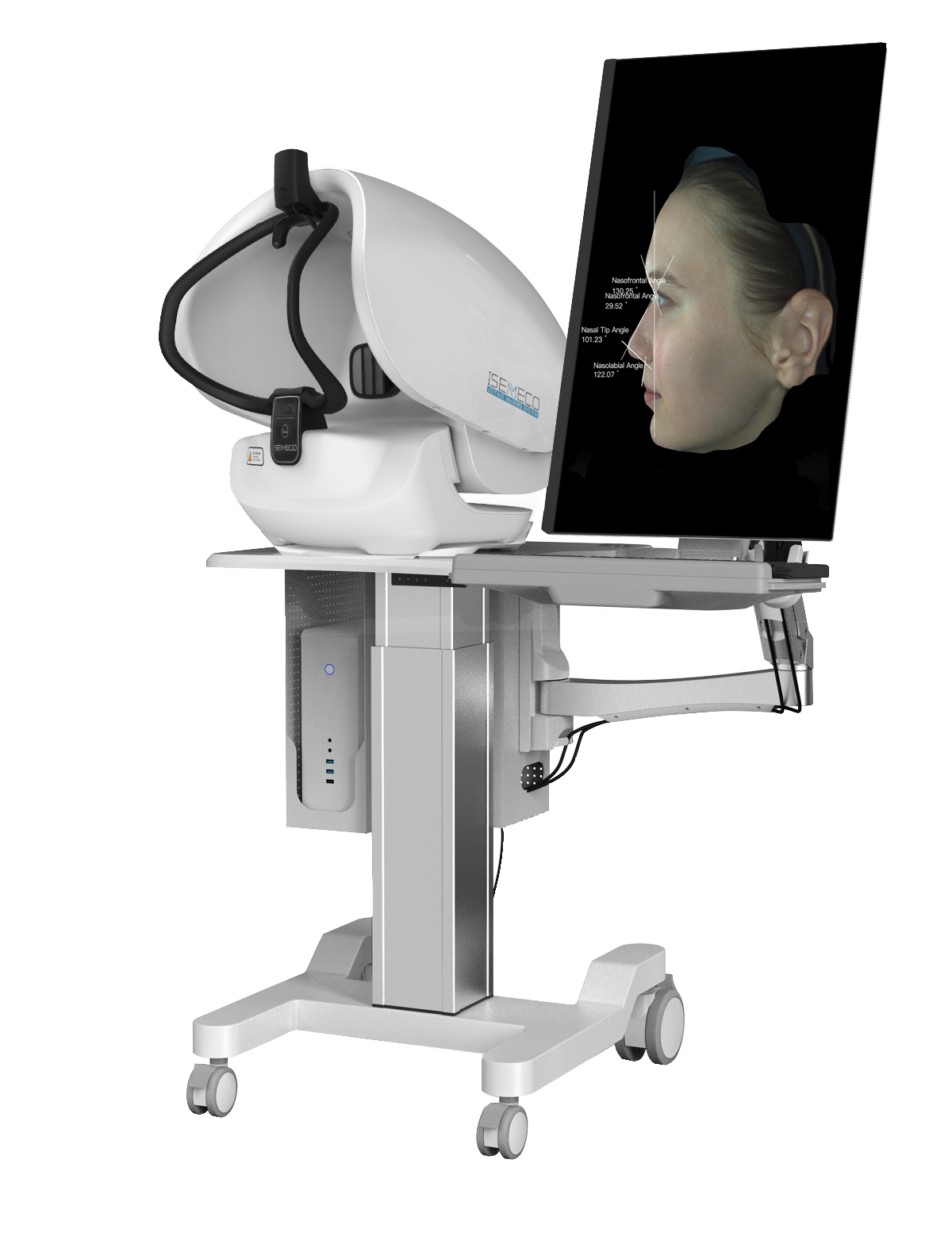
Dermatology is undergoing a significant transformation, driven by the fusion of advanced imaging and artificial intelligence. At the center of this shift is MEICET, whose AI-driven skin analyzers are revolutionizing how clinicians diagnose, plan, and communicate—turning complex skin data into clear, actionable insights that enhance accuracy and patient trust.
The Power of AI and Multi-Spectral Imaging Together
MEICET’s MC88 Analyzer exemplifies the synergy between deep learning and multi-spectral imaging. Trained on extensive dermatological datasets, its algorithms identify patterns in skin conditions that might slip past the human eye. By combining five imaging modes—including UV fluorescence, cross-polarized light, and visible light—the MC88 dives beyond surface layers to detect:
- Subtle melanin clusters linked to pigmentation disorders, even in their earliest stages. For example, a patient with a family history of melasma might show pre-clinical melanin activity under UV fluorescence, allowing for early intervention with tyrosinase inhibitors to prevent full-blown development.
- Early signs of structural changes associated with aging, such as shifts in skin elasticity. Cross-polarized light can reveal reduced collagen support in areas like the jawline, guiding recommendations for collagen-stimulating treatments before sagging becomes visible.
- Vascular irregularities that signal inflammatory conditions like rosacea. Visible light scans might show faint, widespread redness, while cross-polarized imaging highlights underlying capillary dilation—key for distinguishing rosacea from temporary flushing and tailoring treatments like pulsed dye laser therapy.
This precision allows clinicians to move beyond treating symptoms. For instance, a patient with occasional redness might, through the MC88’s scan, reveal underlying vascular activity that points to early rosacea. Instead of temporary fixes like soothing creams, the clinician can recommend targeted treatments to calm inflammation at its source, preventing progression.
AI as a Collaborative Tool, Not a Replacement
The Pro-A Analyzer is designed to enhance, not replace, clinical expertise. Its AI processes multi-spectral images to generate objective metrics on skin health, such as:
- Wrinkle structure and pore resilience
- Pigment distribution and tone consistency
These metrics act as a starting point for clinicians to craft evidence-based plans. For example, a scan might highlight areas of uneven texture in the cheek region, with AI flagging it as consistent with mild solar elastosis (sun-induced collagen damage). The clinician can then recommend a combination of gentle resurfacing to improve texture and a retinol serum to stimulate collagen—using the AI’s findings to validate and refine their clinical judgment. The Pro-A’s color-coded dashboards make it easy to explain these findings to patients, turning technical data into a shared understanding of their skin’s needs. A patient might see a heatmap of their texture irregularities and immediately grasp why a specific treatment is recommended.
Overcoming the Limits of Traditional Diagnostics
Traditional dermatology often relies on visual assessments and patient history—methods that can be time-consuming and vary between clinicians. MEICET’s AI-powered tools address these gaps by:
- Reducing Variability: Algorithms deliver consistent evaluations, ensuring that a pigment spot or texture change is assessed the same way, regardless of who is reviewing it. This is particularly valuable in multi-provider clinics, where consistency in diagnosis and treatment plans is key to patient satisfaction.
- Speeding Up Planning: Real-time analysis of scans cuts down the time spent interpreting results, letting clinics see more patients without sacrificing thoroughness. A clinician can review a full set of multi-spectral images and AI insights in minutes, compared to the longer time needed for manual assessment.
- Standardizing Communication: Customizable, branded reports ensure patients receive clear, consistent information about their skin—whether they’re seeing a dermatologist, nurse, or aesthetician. This reduces confusion and ensures patients hear the same key messages about their care, regardless of which provider they consult.
Ethics and Transparency in AI
MEICET prioritizes responsible AI use, with features that keep clinicians in control:
- Data Privacy: Patient scans and records are protected by robust encryption and strict access controls,This ensures sensitive skin data remains confidential.
- Clear Algorithms: Clinicians can see how AI arrives at its recommendations, with detailed breakdowns of which imaging modes and features influenced a conclusion. This transparency allows clinicians to validate findings and maintain final decision-making authority.
- Inclusive Design: AI models are regularly updated with diverse skin datasets, including various skin types, ethnicities, and tones. This ensures accuracy across all patient populations, avoiding bias and ensuring equitable care.
Conclusion
MEICET’s AI-driven skin analyzers are redefining what’s possible in dermatology. By merging multi-spectral precision with AI’s analytical power, they enable faster, more accurate care—all while building patient trust through clear, data-backed communication.
Discover how these tools can elevate your practice. Visit www.isemeco.com to learn more.
 EN
EN
 AR
AR
 BG
BG
 HR
HR
 CS
CS
 DA
DA
 NL
NL
 FI
FI
 FR
FR
 DE
DE
 EL
EL
 HI
HI
 IT
IT
 JA
JA
 KO
KO
 NO
NO
 PL
PL
 PT
PT
 RO
RO
 RU
RU
 ES
ES
 SV
SV
 TL
TL
 IW
IW
 ID
ID
 SR
SR
 SK
SK
 SL
SL
 UK
UK
 VI
VI
 SQ
SQ
 HU
HU
 TH
TH
 TR
TR
 FA
FA
 AF
AF
 MS
MS
 UR
UR
 BN
BN
 LA
LA

